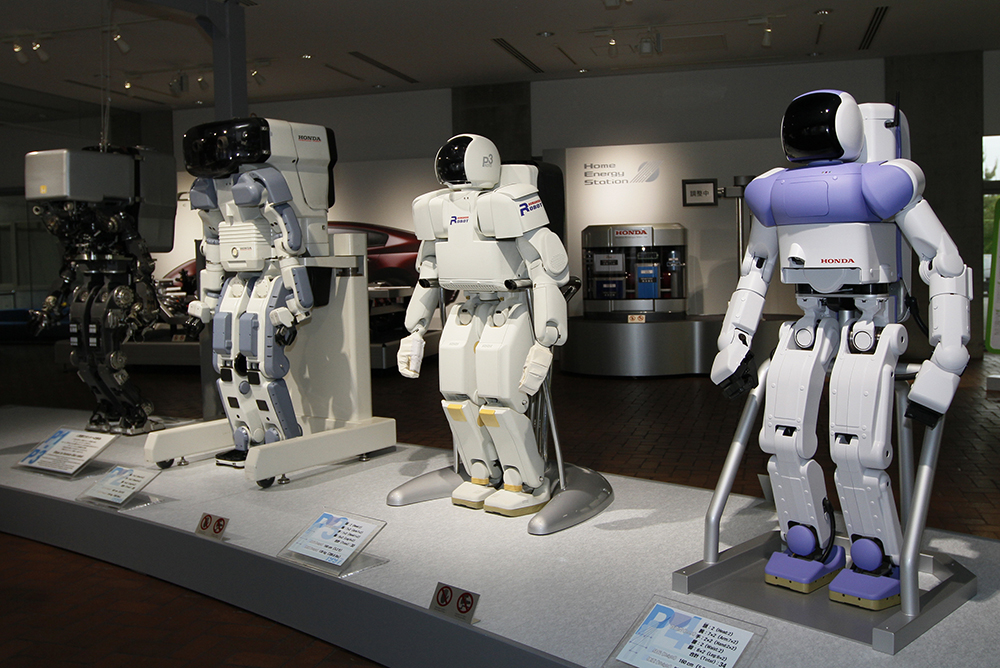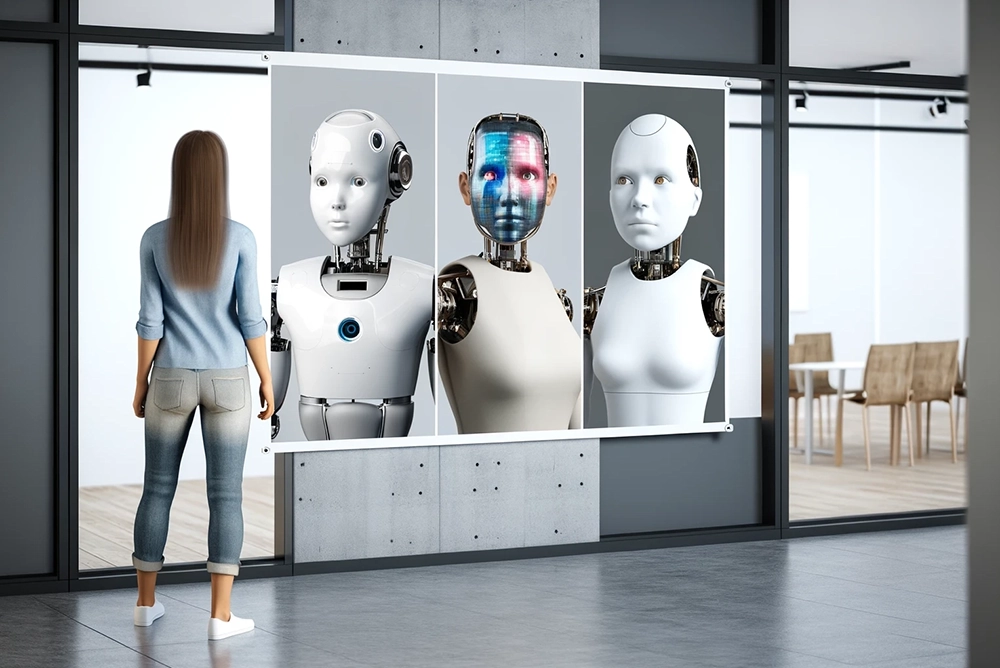According to several media reports, humanoid robots will take part in a half marathon together with humans for the first time in Beijing in April 2025. Around 12,000 people will run the 21-kilometre course, accompanied by robots from more than 20 companies worldwide. The robots must look humanoid, be able to move on two legs, and be between 0.5 and 2 metres tall. The majority of the larger models are likely to be so-called all-purpose robots. Both remote-controlled and autonomous robots are permitted – with the option of changing batteries during the race. The premiere is part of a broader strategy by China to promote humanoid robots to achieve technological independence, boost the economy, and compete in the global technology race, especially with the US. Last year, the humanoid robot Galbot had already supported a marathon final, but this time the machines are running the full distance (Photo: Morio, CC BY-SA 3.0).
A Change in Design
The last few years have seen the creation of a large number of quadruped and bipedal robots. Many have been inspired by Spot and Atlas from Boston Dynamics. These, in turn, can be traced back to Sparko and Elektro, which became famous around 1940. Atlas paved the way for the so-called general-purpose or universal robots that are now conquering the market, from H1 to Figure 01. They are not yet truly universal, but they are getting there. Most robotic quadrupeds don’t have a real head. A few talented hobbyists have produced their own with a 3D printer. This can be referred to as robot enhancement. Most robotic bipeds have a head that looks creepy or repulsive. This will be a key design problem in the coming years. It may be that people will quickly get used to ugly heads. But it would probably help with adoption and acceptance if the heads were nice to look at and had convincing facial expressions. After the huge technological advances that have been made in recent years, with new approaches to motor skills and the integration of speech models, what is needed most is a change in design.
Intimate Relationships with Humanoid Robots
In October 2020 the book “Maschinenliebe” (ed. Oliver Bendel) was published by Springer. The title means “Machine Love”, “Machines for Love” or “Machines of Love”. Three contributions are in English. One of them (“Intimate Relationships with Humanoid Robots”) is by Yuefang Zhou and Martin H. Fischer (University of Potsdam). From the abstract: “The topic of human-robot intimate relationships is not only an intensely emotional one that is present in the mass media because of its ability to stir excitement. The very same topic also requires our understanding of basic mechanisms of the human mind and of social cognition in particular. A scientifically-minded framing of the debate around whether and how we might engage in intimate relationships with humanoid robots in the near future might in turn improve our understanding of human sexuality. Viewed from this angle, intimate human-robot interaction is then merely one of many examples of studying human-machine interactions for the benefit of users and as a means of improving our knowledge about humans and the human mind. In this chapter we will adopt such a stance and discuss both social-cognitive and sexual aspects of this innovative topic, review available empirical evidence and offer some suggestions for further research.” More information via www.springer.com/de/book/9783658298630.
AI Workshop at the University of Potsdam
In 2018, Dr. Yuefang Zhou and Prof. Dr. Martin Fischer initiated the first international workshop on intimate human-robot relations at the University of Potsdam, “which resulted in the publication of an edited book on developments in human-robot intimate relationships”. This year, Prof. Dr. Martin Fischer, Prof. Dr. Rebecca Lazarides, and Dr. Yuefang Zhou are organizing the second edition. “As interest in the topic of humanoid AI continues to grow, the scope of the workshop has widened. During this year’s workshop, international experts from a variety of different disciplines will share their insights on motivational, social and cognitive aspects of learning, with a focus on humanoid intelligent tutoring systems and social learning companions/robots.” (Website Embracing AI) The international workshop “Learning from Humanoid AI: Motivational, Social & Cognitive Perspectives” will take place on 29 and 30 November 2019 at the University of Potsdam. Keynote speakers are Prof. Dr. Tony Belpaeme, Prof. Dr. Oliver Bendel, Prof. Dr. Angelo Cangelosi, Dr. Gabriella Cortellessa, Dr. Kate Devlin, Prof. Dr. Verena Hafner, Dr. Nicolas Spatola, Dr. Jessica Szczuka, and Prof. Dr. Agnieszka Wykowska. Further information is available at embracingai.wordpress.com/.



